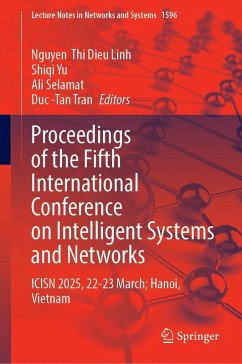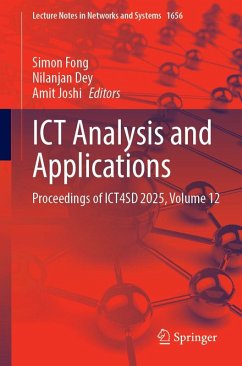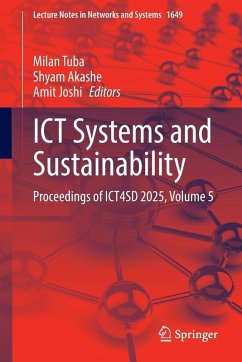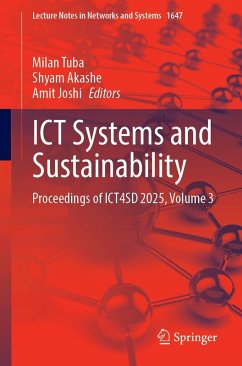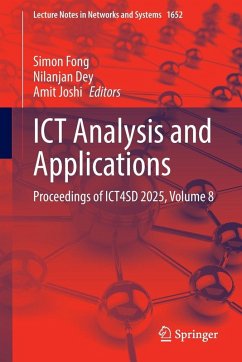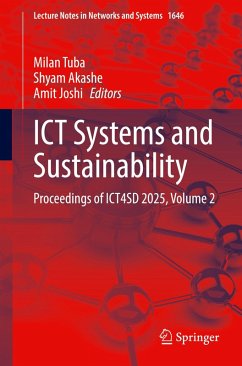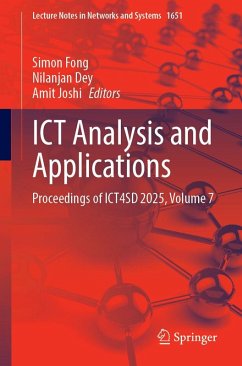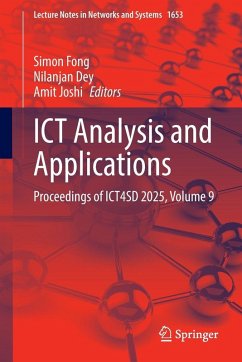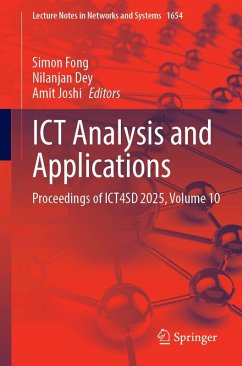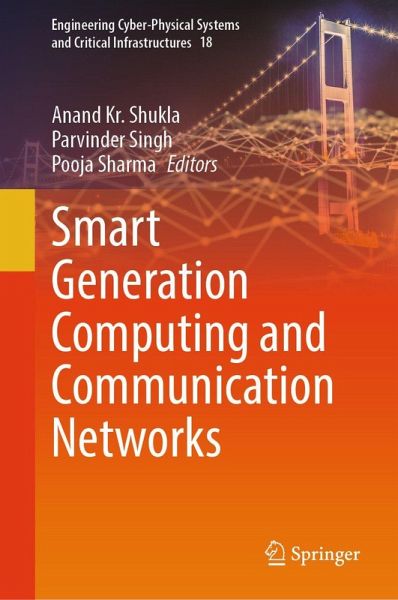
Smart Generation Computing and Communication Networks

PAYBACK Punkte
67 °P sammeln!
This book refers to an innovative and comprehensive convergence of modern computing systems and intelligent communication networks with latest computing technologies, including edge computing, 5G/6G networks, Internet of Things (IoT), artificial intelligence (AI), machine learning (ML), and blockchain-driven communication systems, and also provides information about how advanced processors work with edge integration and parallel computing to deliver faster data analysis and how AI incorporates with ML for decision making , predicative analysis, and automationThis book approaches its subject by...
This book refers to an innovative and comprehensive convergence of modern computing systems and intelligent communication networks with latest computing technologies, including edge computing, 5G/6G networks, Internet of Things (IoT), artificial intelligence (AI), machine learning (ML), and blockchain-driven communication systems, and also provides information about how advanced processors work with edge integration and parallel computing to deliver faster data analysis and how AI incorporates with ML for decision making , predicative analysis, and automation
This book approaches its subject by seamlessly integrating foundational principles with the latest advancements in smart computing What sets this work apart is its multidisciplinary perspective blending computing, electronics, information theory, and real-time communications to address the challenges and opportunities of next-generation intelligent networks. Unlike traditional texts that treat computing and networking as separate disciplines, this book highlights their co-evolution and interdependence in the era of smart and autonomous systems.
The book spans on both theoretical concepts and practical applications. It covers essential topics such as smart routing algorithms, network virtualization, cognitive radio networks, cybersecurity in smart grids, sensor communication, cloud-edge cooperation, and sustainable energy-aware networking. It also includes case studies and research-based insights on deploying intelligent infrastructure for industries like healthcare, manufacturing, smart cities, and transportation.
In addition, the book delves into the role of distributed computing models, fog and mist computing layers, and real-time analytics in shaping responsive and adaptive communication networks. It provides detailed discussion on emerging paradigms like software-defined networking (SDN), network function virtualization (NFV), and their synergy with AI-driven orchestration for dynamic network management.
Designed for a broad audience, the book serves as a valuable resource for postgraduate students, academic researchers, and professionals working in computer science, electronics, telecommunications, and data engineering. It is also suitable for policymakers and system architects seeking to understand the technologies shaping Industry 4.0 and beyond.
This book approaches its subject by seamlessly integrating foundational principles with the latest advancements in smart computing What sets this work apart is its multidisciplinary perspective blending computing, electronics, information theory, and real-time communications to address the challenges and opportunities of next-generation intelligent networks. Unlike traditional texts that treat computing and networking as separate disciplines, this book highlights their co-evolution and interdependence in the era of smart and autonomous systems.
The book spans on both theoretical concepts and practical applications. It covers essential topics such as smart routing algorithms, network virtualization, cognitive radio networks, cybersecurity in smart grids, sensor communication, cloud-edge cooperation, and sustainable energy-aware networking. It also includes case studies and research-based insights on deploying intelligent infrastructure for industries like healthcare, manufacturing, smart cities, and transportation.
In addition, the book delves into the role of distributed computing models, fog and mist computing layers, and real-time analytics in shaping responsive and adaptive communication networks. It provides detailed discussion on emerging paradigms like software-defined networking (SDN), network function virtualization (NFV), and their synergy with AI-driven orchestration for dynamic network management.
Designed for a broad audience, the book serves as a valuable resource for postgraduate students, academic researchers, and professionals working in computer science, electronics, telecommunications, and data engineering. It is also suitable for policymakers and system architects seeking to understand the technologies shaping Industry 4.0 and beyond.



